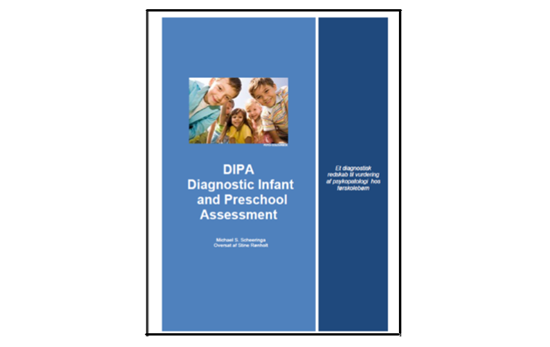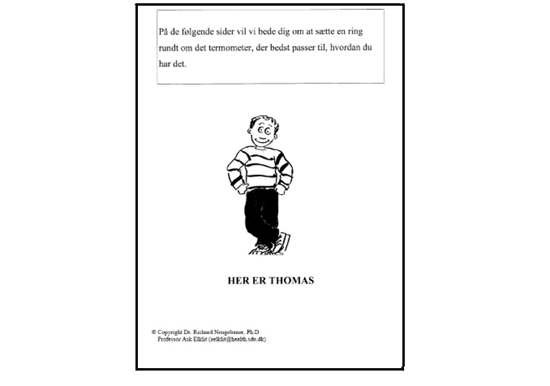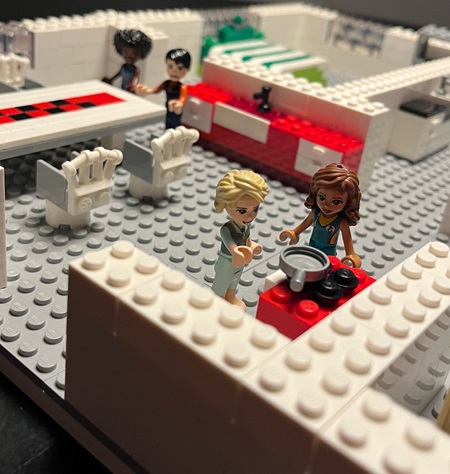The trauma tests included in the course
Diagnostic Infant and Preschool Assessment (DIPA)
 The DIPA is a semi-structured interview for parents of children aged 1-6 years. The DIPA was developed by Professor
The DIPA is a semi-structured interview for parents of children aged 1-6 years. The DIPA was developed by Professor
Michael Scheeringa from Tulane University, who is one of the leading researchers in the validity of the PTSD diagnosis for preschool children and researches trauma-focused cognitive behavioural therapy for preschool children. The Danish Center for Psychotraumatology has translated the DIPA into Danish and validated it in a Danish context. The DIPA is designed to uncover developmentally specific symptoms for preschool children and covers all symptoms of PTSD, depression, bipolar affective disorder, ADHD, conduct disorder, unsocialised behaviour disorder, abnormal separation anxiety, individual phobia, social phobia, generalised anxiety disorder, OCD, reactive attachment disorder and sleep disorder.
You can find the Danish Center for Psychotraumatology´s publications related to DIPA here.
The Thomas test 
The Cartoon Test of Thomas is used to identify symptoms of PTSD in children aged 6-12+ years. The Thomas test was originally developed as Darryl by Dr Richard Neugebauer from Columbia University in the 1990s. The Danish Center for Psychotraumatology has translated and adapted the American version into Danish and validated it with different groups of Danish children. The Thomas test is available in 6 versions to identify PTSD symptoms after experiencing 1) Domestic violence, 2) Sexual assault by an adult, 3) Fire, 4) Death of a close relative, 5) Illness in the child and 6) Escape from war. The test is considered suitable for school children who have not yet reached an abstract language level, bilingual children and children with attention difficulties.
You can read more about the Thomas test and find publications here.
Odense Child Trauma Screening (OCTS) 
OCTS is a story stem screening tool that can be used in the psychological assessment of children aged 4-8 years. The OCTS is designed to screen for signs of traumatisation in a structured play setting. It utilises play and storytelling with characters and a LEGO® dollhouse.
Challenges in assessing younger children who have been exposed to traumatic experiences include the fact that children may have difficulty talking about their experiences and symptoms because language and cognitive abilities are still developing. In addition, children's trauma symptoms may appear differently than adults', typically expressed in behavioural manifestations or, for example, in the child's play. Story stem tools are structured play interviews for preschoolers and school children that are built around short stories and games with toys that the interviewer starts and the child is asked to continue. Through the child's play and narrative, the child's behaviour is observed and the child's inner psychological life, mental representations and emotion regulation strategies are psychometrically evaluated. Using OCTS ensures a structured and controlled testing situation that is adapted to the child's age and language development level. Play can also serve as a reassuring element for children who may otherwise find it difficult to engage in other testing contexts.
The OCTS were developed at the Danish Center for Psychotraumatology, you can our publications here, as well as a list of certified Danish psychologist's in OCTS here.